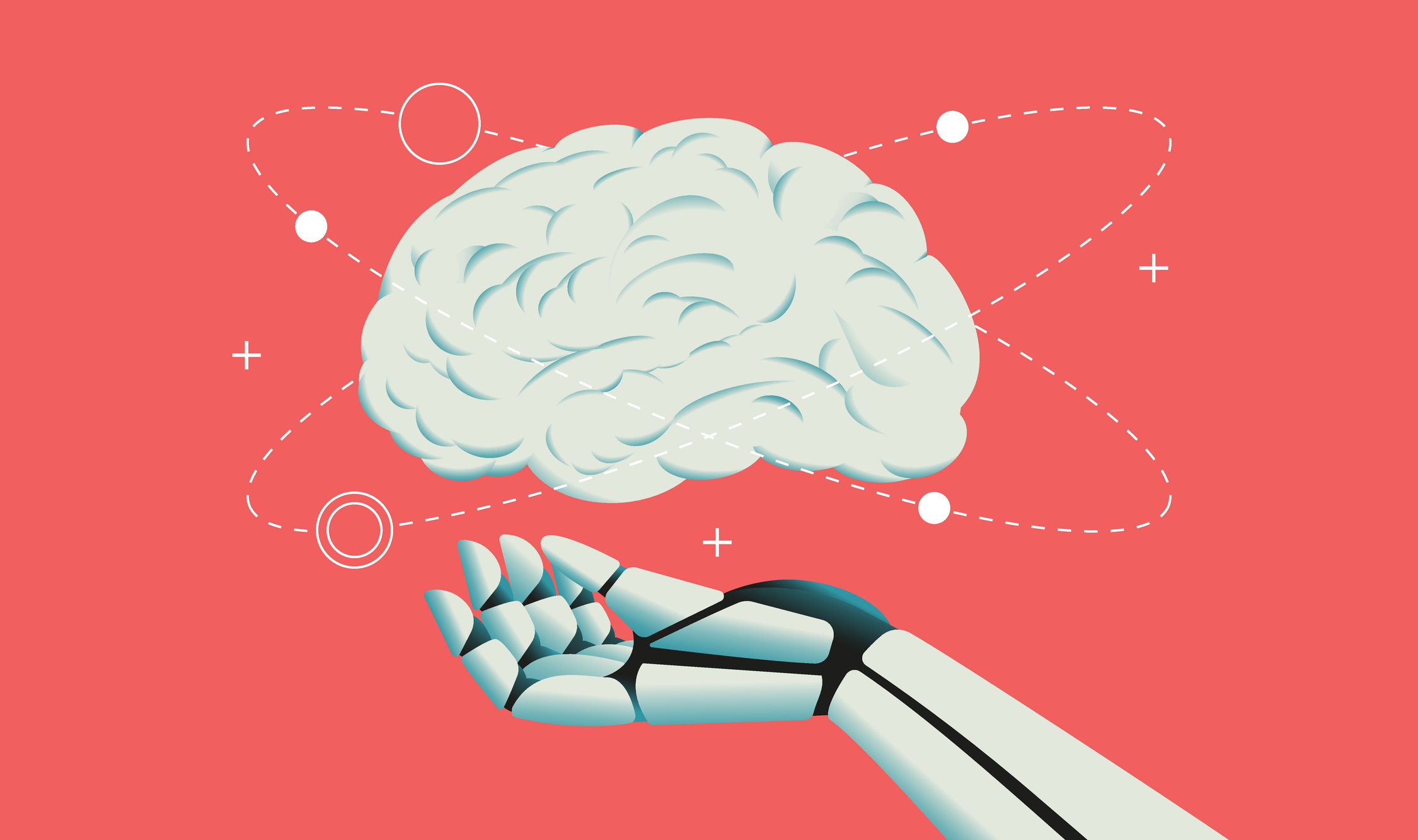What AI Means for Alzheimer’s: 6 Things an Expert Wants You to Know
Written By: BrightFocus Editorial Staff
Reviewed By: Sharyn Rossi, PhD, Director, Neuroscience Programs, BrightFocus Foundation



Written By: BrightFocus Editorial Staff
Reviewed By: Sharyn Rossi, PhD, Director, Neuroscience Programs, BrightFocus Foundation

In 2024, the Food and Drug Administration approved an artificial intelligence (AI) tool called BrainSee to predict the likelihood of Alzheimer’s progression using brain scans.
Artificial intelligence (AI) is transforming how scientists detect and treat Alzheimer’s disease. Timothy Hohman, PhD, an Alzheimer’s researcher and neurology professor at Vanderbilt Memory & Alzheimer’s Center, joined BrightFocus Foundation’s Zoom In on Dementia & Alzheimer’s virtual discussion series to give a deep dive into all things AI and dementia. Check out his answers below.
Dr. Hohman: The terms AI and machine learning are often used interchangeably. The difference is mostly in complexity. Machine learning can use simple models repeatedly, while AI typically involves higher computational load (the amount of computing power and memory required to run the model) and more complex networks.
A lot of the methods we use for AI are based on machine learning. Usually, what we’re trying to do is build a model that is more complicated than we could make with a standard analytical approach. With AI, we use layers of neural networks that allow us to make precise definitions of an individual person or disease.
Dr. Hohman: One of the most fundamental challenges in Alzheimer’s disease is that the disease includes incredible heterogeneity. This means that it affects people very differently—from how quickly symptoms appear to how the disease progresses, and which proteins are involved—making it harder to predict and treat. AI can help us reduce that complexity and identify who is likely to benefit from a therapy, who will progress to dementia, or who might remain cognitively normal.
In terms of diagnosis, tools like BrainSee allow clinicians to use clinical information and brain imaging to get a quick, standardized assessment of a person’s risk of progressing to dementia within five years. This is especially helpful for primary care physicians who may not have dementia-specific expertise.
Dr. Hohman: Right now, getting an accurate diagnosis is a challenge, especially in primary care settings. AI could make it easier by using blood-based biomarkers, cognitive tests, and other data to guide clinicians. For example, blood biomarkers can be influenced by things like kidney function, so AI can help integrate health records and comorbidities to interpret those results accurately.
Most often in the community, the people who are doing workups don’t necessarily have specialized knowledge about neurology, dementia, or Alzheimer’s disease biology. What you’re starting to see already is that AI tools can help the clinician make an accurate decision based on the clinical information that’s available to them.
Eventually, I think this will be used to determine whether you should be diagnosed with a disease. That’s an exciting application for AI approaches that make essentially complex, multi-layered decisions for a clinician achievable, even if you don’t have specialty knowledge around dementia.
Dr. Hohman: Blind application of any model is dangerous. If your training data is biased, the model will be too. That’s why our team focuses on data preparation—making sure models are trained on representative data and validated using gold-standard benchmarks. We’re also thinking more about privacy and security, not just in the data but in the models themselves.
If a model works well for one group but not another, and you roll it out anyway, you can actually worsen health disparities. We have to move carefully. Just because we can build something quickly doesn’t mean we should deploy it without thorough validation.
Dr. Hohman: Yes. Many modifiable risk factors—like hearing loss, cardiovascular health, or poor sleep—play a role in dementia. AI can help track these through apps or wearables, offering personalized insights and nudging people toward healthier behavior.
So many of the factors that drive Alzheimer’s disease have an enormous impact on disease. And the way that AI can do things—improve your hearing, or improve your vision, reduce your risk for heart disease, reduce your risk for strokes, help encourage good health behaviors, good dietary behaviors, good lifestyle behaviors—all of those are the areas that you’re really going to see AI having a big impact.
Dr. Hohman: By 2040, I hope we’ll have therapies that slow or halt Alzheimer’s progression. I also think early identification will be routine. AI will help us act earlier and more precisely, both in treatment and prevention.
Early screening makes such a big difference. Whether that’s from a combination of wearable technology and blood-based biomarkers or even some other technologies for biomarkers that haven’t come out yet.
Want to learn more? Watch the full Zoom In on Dementia & Alzheimer’s episode with Dr. Hohman and register for upcoming episodes.
Responses have been edited for length and clarity.
BrightFocus Foundation is a premier global nonprofit funder of research to defeat Alzheimer’s, macular degeneration, and glaucoma. Through its flagship research programs — Alzheimer’s Disease Research, Macular Degeneration Research, and National Glaucoma Research— the Foundation has awarded nearly $300 million in groundbreaking research funding over the past 51 years and shares the latest research findings, expert information, and resources to empower the millions impacted by these devastating diseases. Learn more at brightfocus.org.
Disclaimer: The information provided here is a public service of BrightFocus Foundation and is not intended to constitute medical advice. Please consult your physician for personalized medical, dietary, and/or exercise advice. Any medications or supplements should only be taken under medical supervision. BrightFocus Foundation does not endorse any medical products or therapies.
Every Donation is a Step Forward in the Fight Against Alzheimer’s
Your donation powers cutting-edge research and helps scientists explore new treatments. Help bring us closer to a cure and provide valuable information to the public.
Donate Today